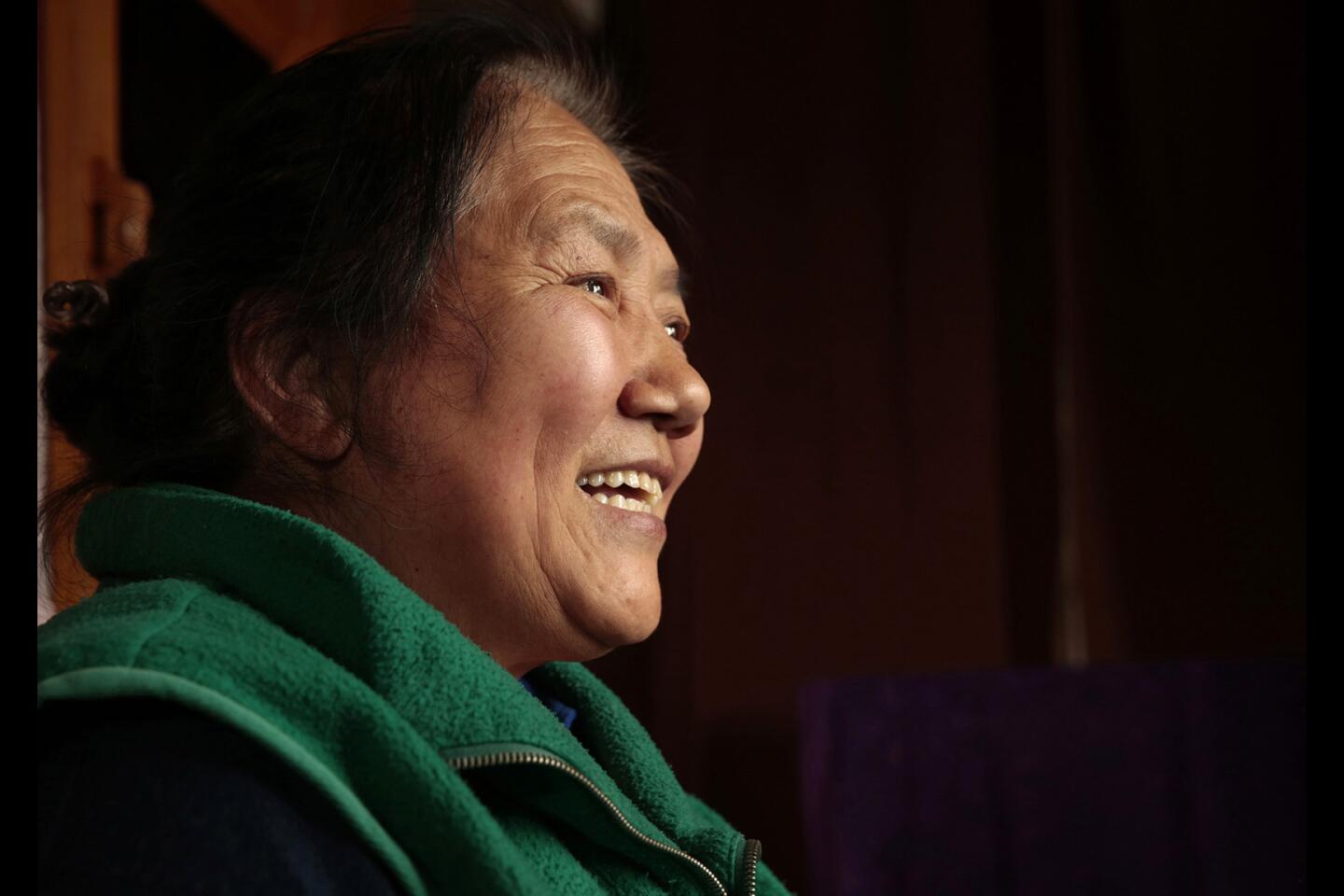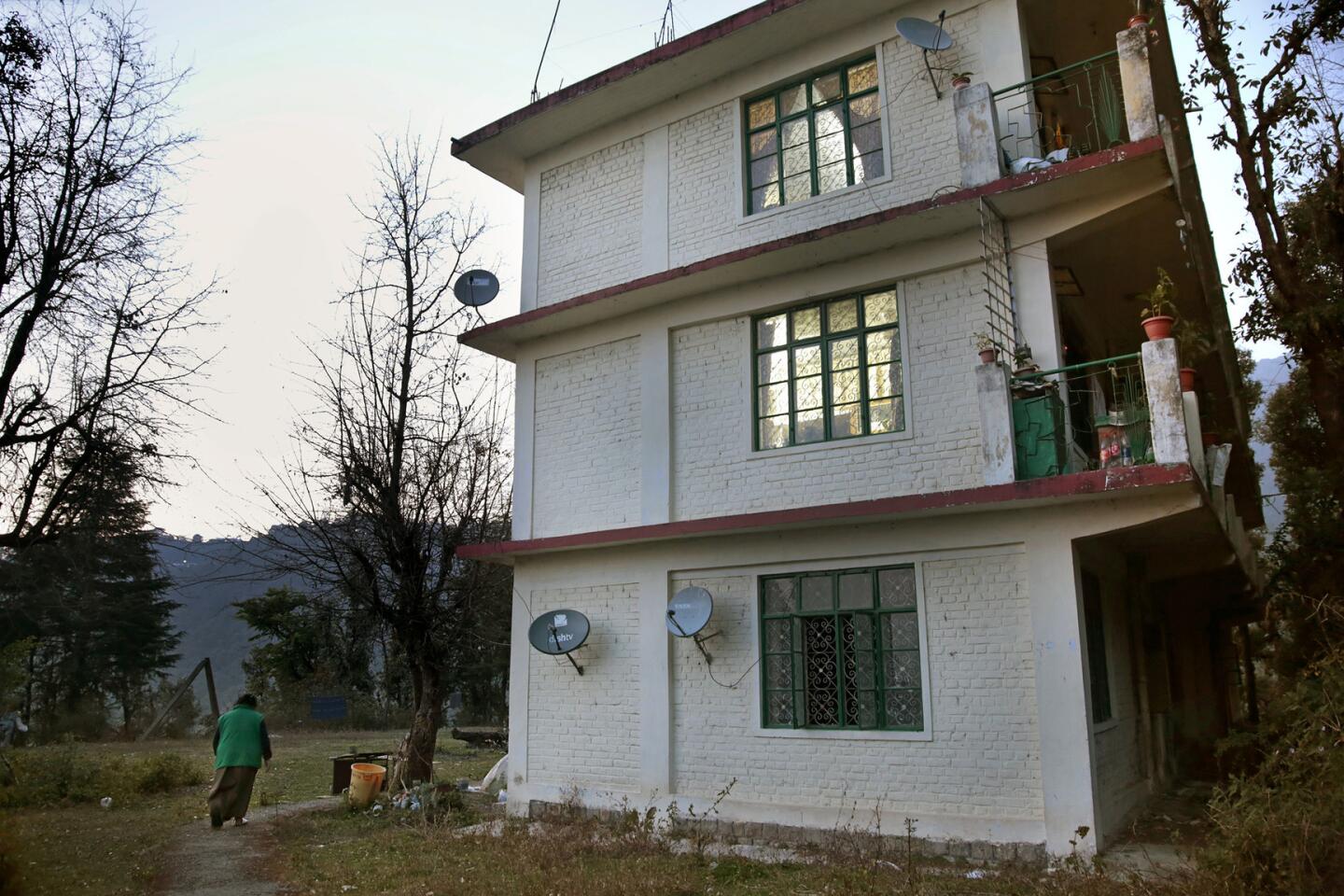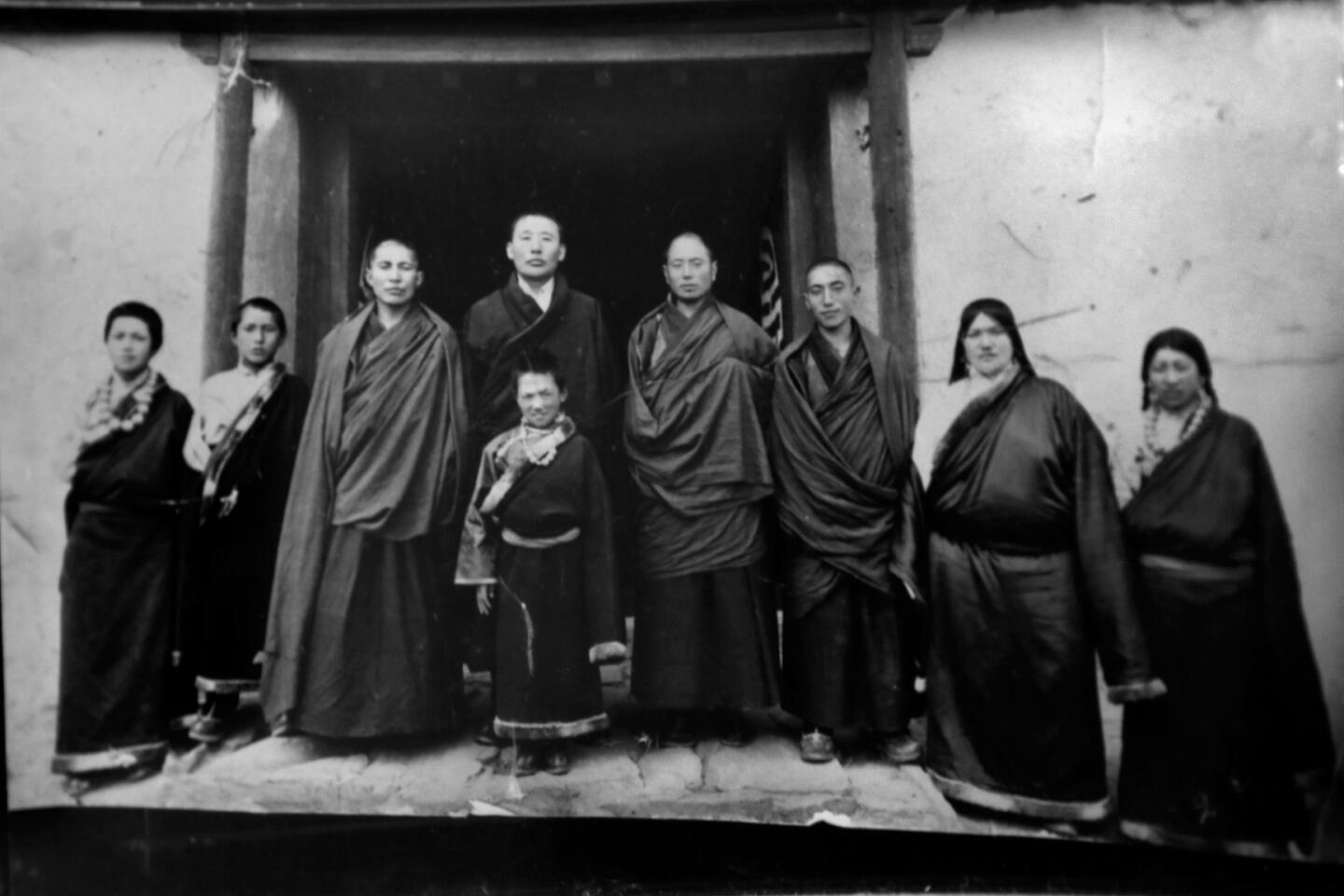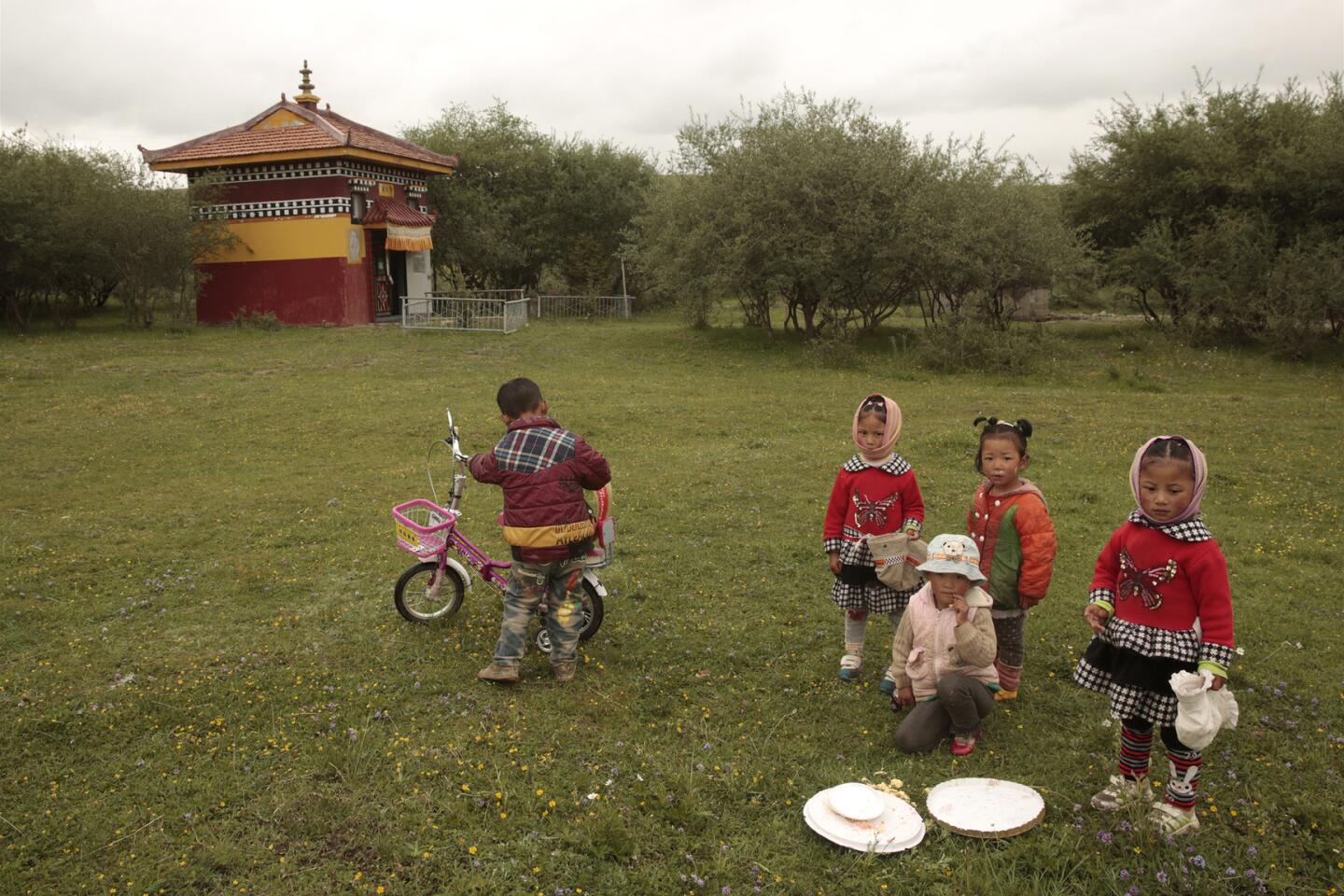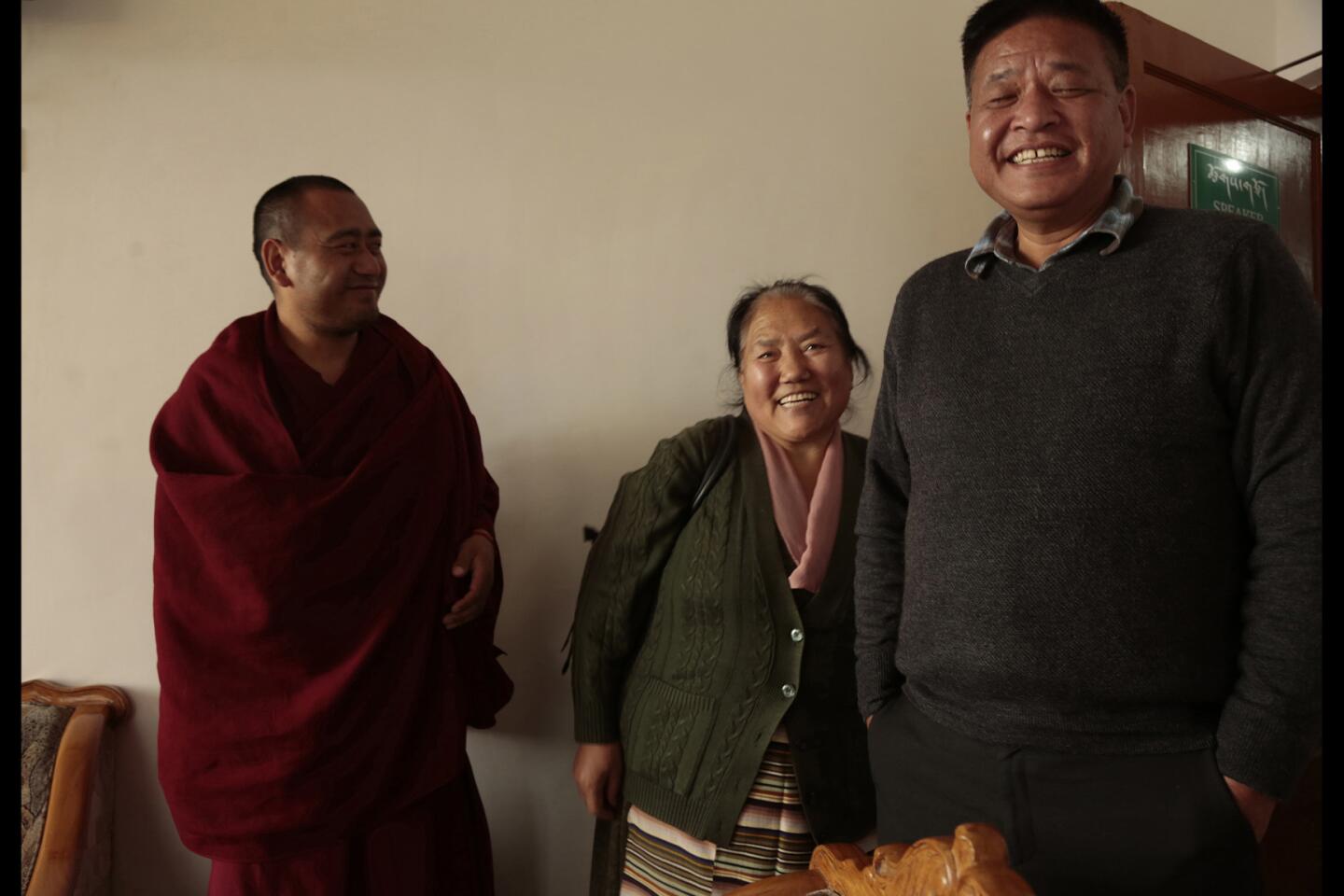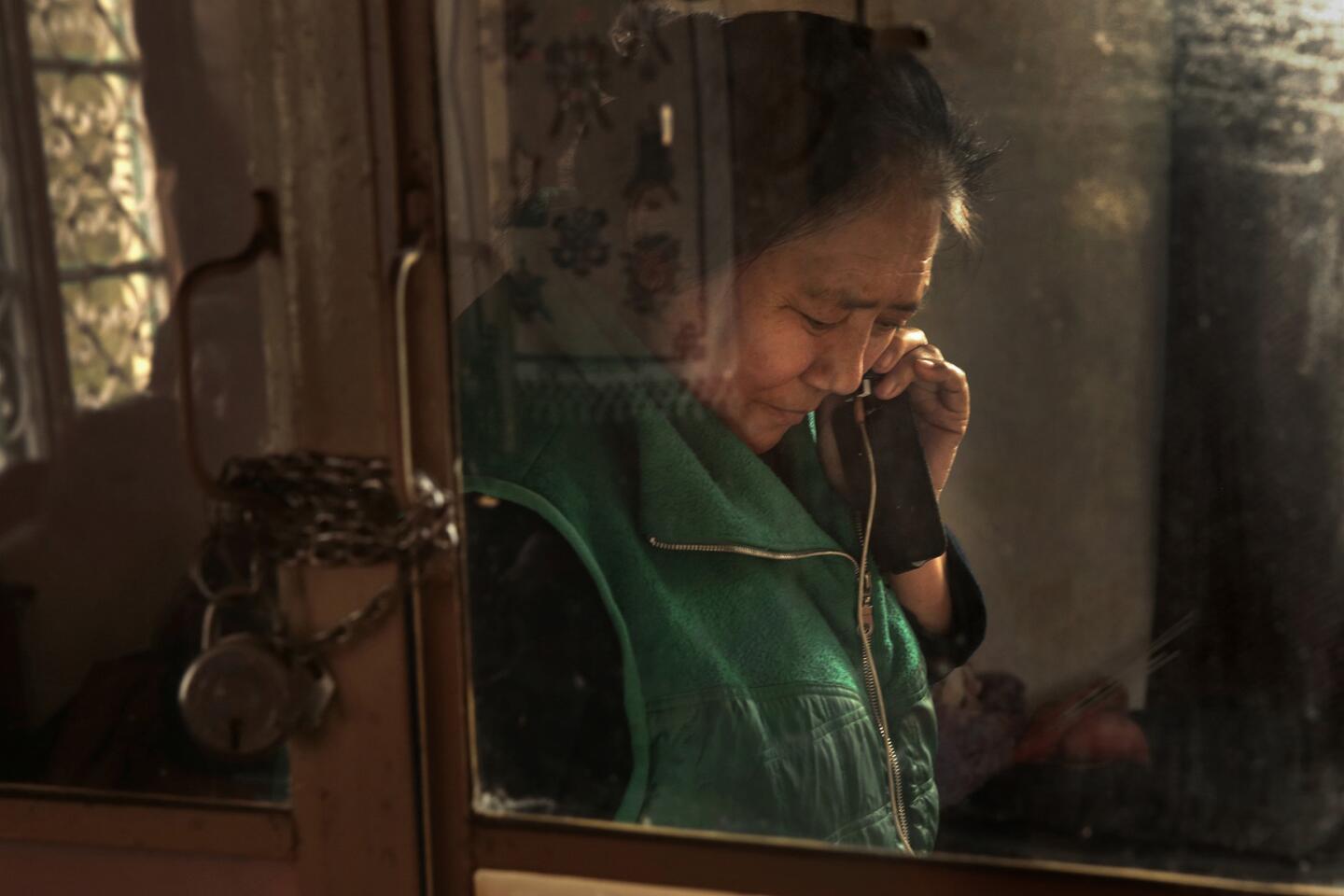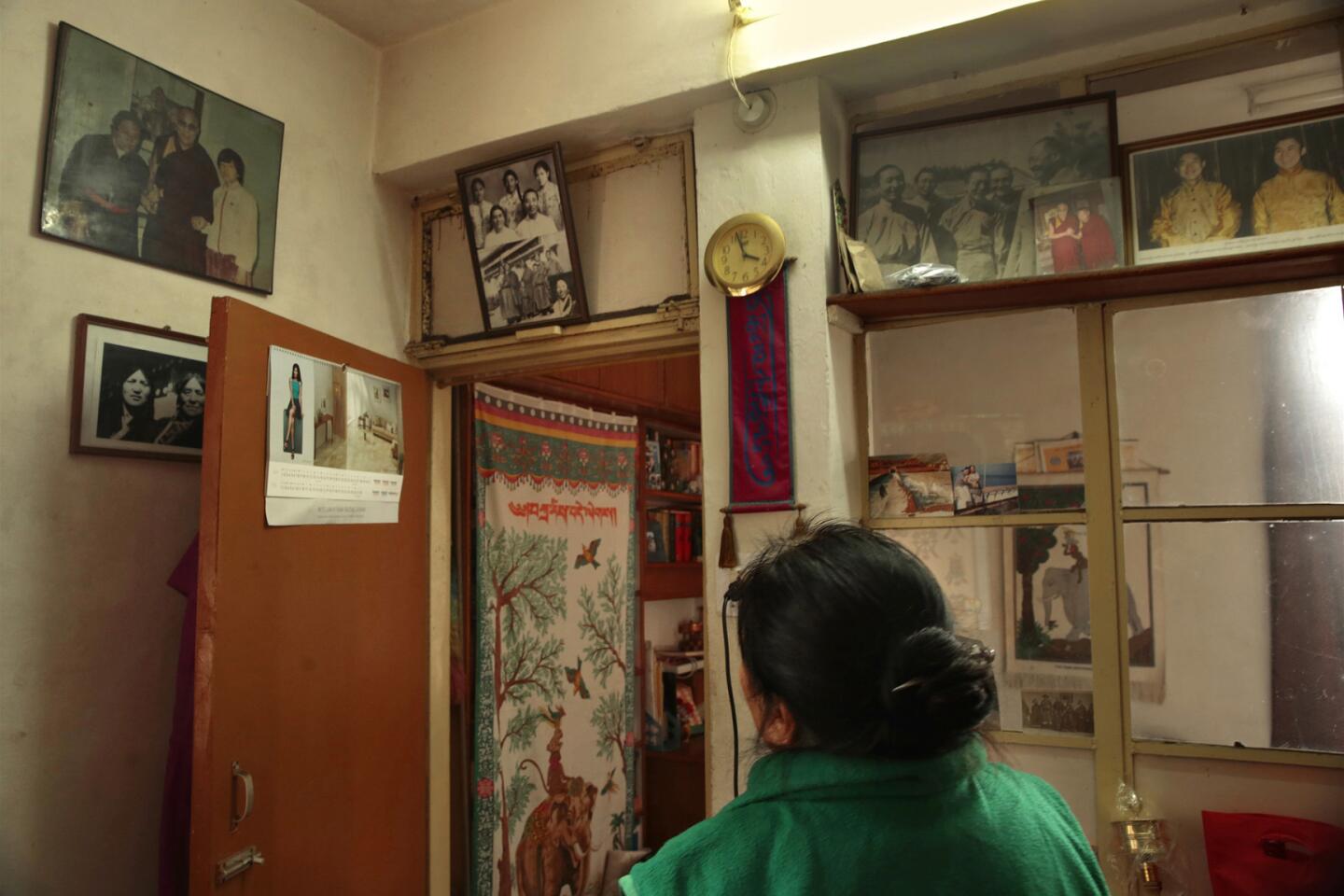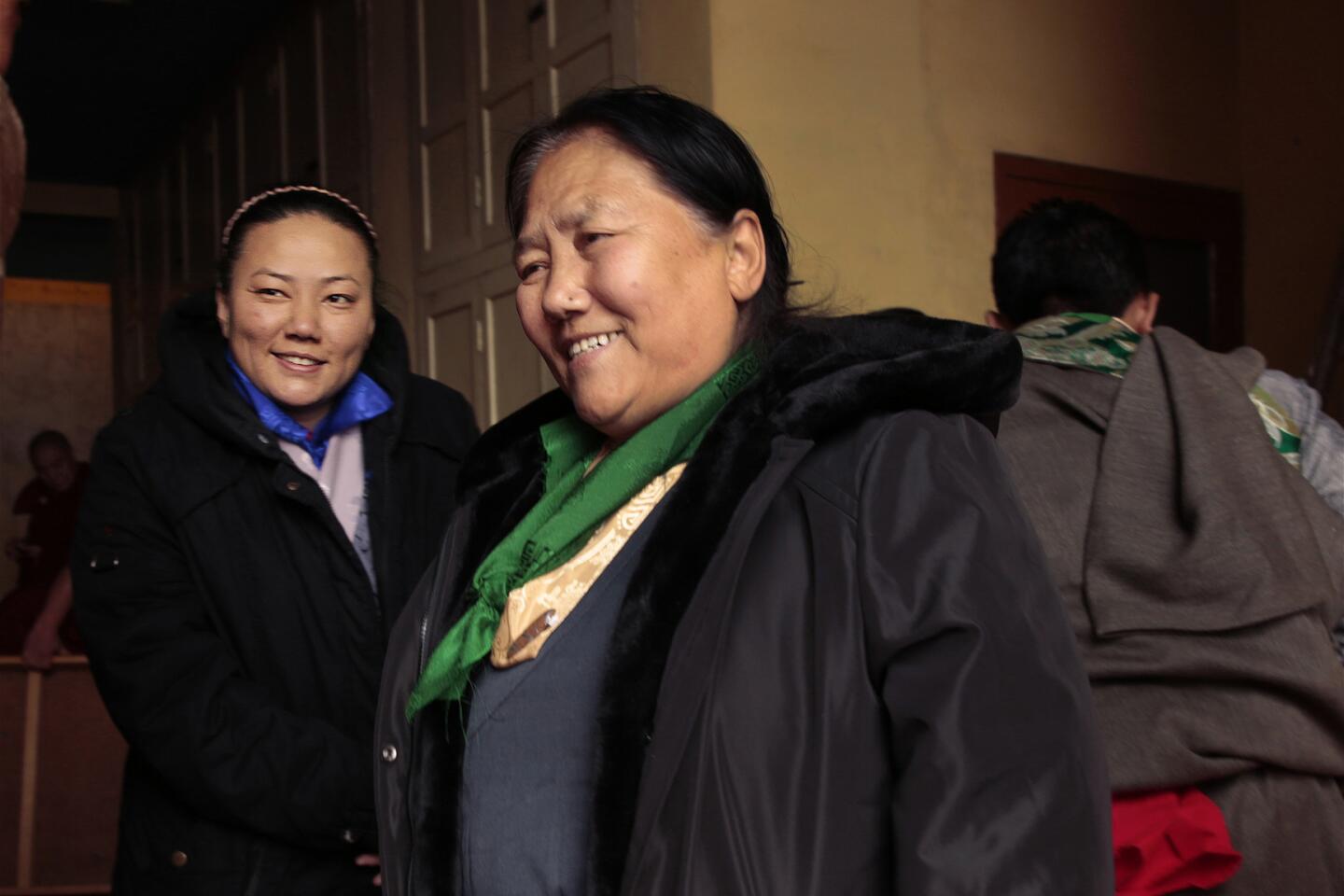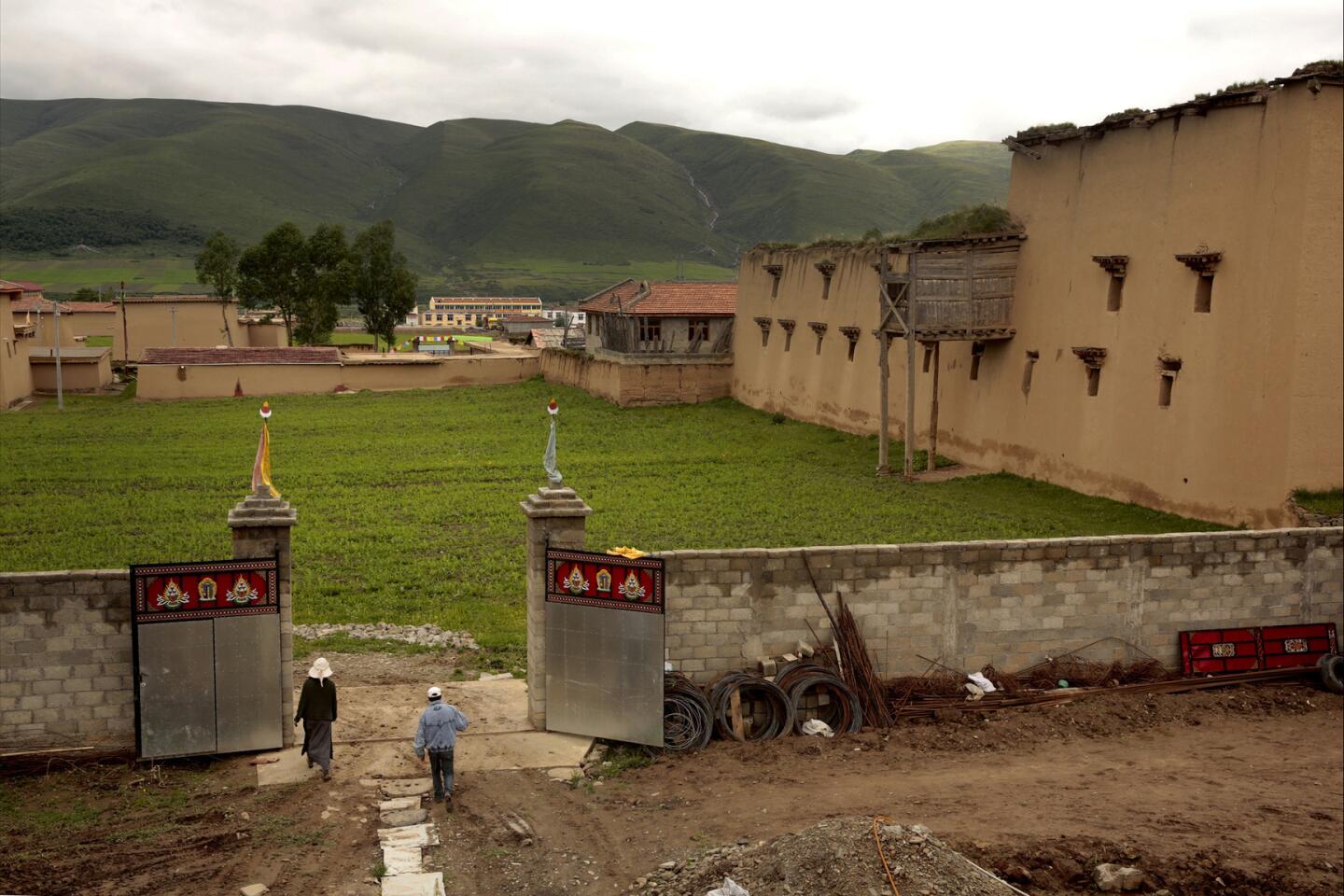Tibet’s Road Ahead: Tibet’s last princess gives a rare interview
Gonpo Tso was born a princess.
As a young woman, she dressed in fur-trimmed robes with fat ropes of coral beads strung around her neck. She lived in an adobe castle on the edge of the Tibetan plateau with a reception room large enough to accommodate the thousand Buddhist monks who once paid tribute to her father.
Then, one night in 1958, when she was 7, Gonpo returned from an outing to find the People’s Liberation Army encamped in front of her house. Chinese soldiers were taping over windows and doors. Women were rushing from room to room in tears trying to pack up the family’s possessions.
While her father was summoned to a party meeting, Chinese Communist officials ordered Gonpo, her mother and sister into a Russian-made jeep and drove them away from lands ruled by her family for generations.
Her expulsion began a decades-long odyssey to some of the most godforsaken stretches of China. Along the way, she worked in the most menial of jobs, almost losing her feet from frostbite as she milked cows on a farm near the Soviet border; she has endured wrenching ruptures from almost everyone she ever loved.
When people hear I am the daughter of a king, they imagine I must be really spoiled, but they don’t know what I have experienced.
— Gonpo Tso
“When people hear I am the daughter of a king, they imagine I must be really spoiled, but they don’t know what I have experienced,” Gonpo says here in the mountaintop town that the Dalai Lama has transformed into the capital of a Tibetan exile government.
Now in her early 60s, Gonpo is a broad-hipped woman with a gap-toothed, girlish smile. She is shy and at first demurs when asked about her past.
“I try not to talk about it because it makes me sad,” she apologizes.
Nevertheless, she serves tea and unshelled peanuts to visitors who drop in unannounced at the tiny walk-up apartment where she has lived alone for two decades, thousands of miles from her husband and daughter.
When she finally agrees to a rare interview, she doesn’t allow herself to cry. But her eyes remain moist as she tells her story, as though she lives in a perpetuity of grief.
It is a story filled with many reversals of fortune, a one-woman window on the tortured history between China and Tibet.
::
Gonpo is the heir to a now-defunct kingdom known as the Mei that until the mid-20th century was centered in Aba, a predominantly Tibetan city in China’s Sichuan province.

On the cusp of the Dalai Lama’s 80th birthday, many Tibetans wonder whether their struggle for autonomy and religious freedom will soon be lost. Desperation can be seen in the number of self-immolations that have occurred since the religious uprisin
Until the 1950s, the area was ruled by Gonpo’s family. Although the Chinese referred to her father as a tribal chieftain, Tibetans used the word gyalpo, or king, and referred to his holdings as the Mei kingdom.
By whatever name, the king reported neither to the Tibetan government in Lhasa nor to Chinese authorities. His constituents maintained a fierce independence, often fighting with other Tibetan rulers who coveted their land and the yak and sheep that were their livelihood.
Gonpo remembers being confined to the second-floor family quarters as a young girl, unable to go out and play because of her royal status. The most fun she had was during holidays, when her father received monks from nearby Kirti Monastery.
“It was fun. Sometimes the young monks would bring a ball and we would kick it around the house,” she recalls.
The three-story adobe house where the family lived still stands. The high, padlocked walls surrounding it are patched with yak dung, and grass grows from the roof. It was used as a warehouse for decades. Last year, the local government erected a plaque and is discussing renovations to turn it into a tourist attraction.
Her father, Rapten Tinley, a tall, slim man with high cheekbones and furrowed brows, appears in photos seeming to carry the weight of the world.
A few years ago, neighbors erected a small shrine to the king over a stream next door.
“The people were very loyal to the king,” says Amdo Gelek, an amateur historian from Aba who now lives in exile in Dharamsala. He says his own father was a general in the king’s militia. “He tried to protect his people from the Chinese until the very end.”
::
In 1949, Mao Tse-tung’s Communists established the People’s Republic of China, and the following year his People’s Liberation Army invaded central Tibet. Having seen the ease with which the Chinese rolled into Lhasa, Gonpo’s father instructed his people to not resist the Chinese.
He was a progressive thinker, Gonpo says, not as attached to the perquisites of power as other Tibetan elites. (“He used to tell me to be humble and had me do chores at home with the servants,” she says.) He initially thought the Chinese Communists could bring much-needed reform to Tibet. He attended a series of meetings in 1954 in Beijing, where he also met the young Dalai Lama, who was being wooed by Mao.
The honeymoon came crashing to an end in 1958, when the Communist Party enacted what it called its “democratic reforms.” Gonpo’s father was forced to abdicate.
Sego, a neighbor in his 70s who was one of Gonpo’s childhood friends, remembers young Gonpo as a girl who never behaved like a princess.
“Sometimes she could be naughty, but she was very kind. She wanted to help clean and help with the elderly. She would give away her clothes.”
“Everybody in the village was in tears the night they left,” he remembers.
Exile took them to Chengdu, the capital of Sichuan province. While Tibetans back in Aba starved as a result of forced collectivization of their farmlands and animals, Gonpo initially lived in comfort. She and her older sister attended an elite Chinese elementary school and then a high school in Beijing for ethnic minorities. Her father was appointed to China’s People’s Consultative Congress, held up as a model minority, but the family’s situation rapidly deteriorated.
In 1966, Mao launched the Cultural Revolution to shake up the power structure. Gonpo was on summer holiday, visiting her parents and sister in Chengdu, when she was instructed to return immediately to Beijing. Her father and mother saw her off at the train station, thrusting a large bag of candies in her hands and instructing her to share with her seatmates.
She would never see her parents again.
Back at school, 15-year-old Gonpo became a target of the zealous student revolutionaries known as Red Guards.
They called her into the school’s courtyard, where she was forced to stand bend over at the waist with her hands clasped behind her. Classmates pounded her with their fists and kicked her, screaming abuse.
She was a class enemy, they yelled. Her father was an oppressor who used to eat from the skulls of vanquished enemies. Her family, they said, had a telegraph that they used to send secret messages to the Dalai Lama, who had fled to exile in India seven years earlier.
In October 1966, two months after Gonpo returned to school, her mother was traveling to visit relatives north of Chengdu and disappeared during an overnight stop. Her hotel room door was found ajar, and the sash to her chuba, a Tibetan robe, was found lying on the floor, but no body was ever located.
A few days later, her father, searching for his wife, jumped into a river and drowned in an apparent suicide.
“Your parents are no more,” a classmate informed Gonpo. “You are not allowed to cry because your father was a counter-revolutionary and a reactionary.”
::
It was almost a relief in 1968 when Gonpo learned that she would be exiled more than 2,000 miles away to work on a military-run farming compound in Xinjiang, a few hours from the Soviet border.
She got up before dawn to milk the cows, then walked more than 10 miles to the fields, part of the way through marshland. There, she learned that her only remaining family member, a sister who had become a doctor, had died of smallpox.
... in the larger scheme of things, the issue of Tibet was bigger than family things.
— Gonpo Tso
The one bright spot on the farm was a handsome young Han Chinese man who had also been exiled as a class enemy, although his background wasn’t deemed as bad as hers. When Gonpo was given a quota of milk to sell, he would get his friends to buy from her.
It took a few years to realize that it was love, not pity.
Ethnically mixed marriages were unusual in the era, and authorities disapproved of the relationship. The couple were not given permission to marry until 1976, the year Mao died. By then, the Cultural Revolution was over and a period of relative liberalization had begun.
Gonpo and her husband were allowed to move to his hometown, Nanjing, in eastern China. Gonpo went to teachers college and afterward got a job teaching music and Chinese in elementary school. She had two daughters and settled into a quiet life, her colleagues unaware of her background.
One day, she says, a large chauffeur-driven car that belonged to the provincial leader pulled up in front of the school. As teachers and students watched agape, Gonpo was ordered to hop in and report to the Communist Party offices. A Tibetan member of the Chinese Cabinet had discovered her identity and instructed Communist Party officials to give her special treatment.
Within days, Gonpo and her family were assigned a new apartment in an elite building.
“You better take it because the political winds around here change faster than the summer weather,” her father-in-law advised. She was given half a dozen official positions.
It was the 1980s, and the Communist Party was making efforts to co-opt Tibetans. Gonpo was allowed to visit Aba in 1984, for the first time since her expulsion, and she was stunned by the level of destruction. At the main crossroad, where Kirti Monastery was once the centerpiece of town, there was only rubble.
Gonpo says she leaned against the ruins of a gate and wept.
Seeing her cry, people nearby became curious. Who was this stranger?
Gonpo was initially reluctant to answer, but eventually mustered the courage. “I am the daughter of the king,” she said.
The Tibetans rushed toward her, hugging her.
“It was like we were long-lost relatives,” she says. “All we could do was hold each other and cry.”
::
Gonpo was not unhappy in China. She loved her husband. But she felt her heritage slipping away beneath the trappings of an increasingly cushy life. She had forgotten so much Tibetan that she needed an interpreter in 1987 when she met in Beijing with the Panchen Lama, the highest-ranking figure after the Dalai Lama.
“What kind of Tibetan girl are you?” she remembers the Panchen Lama asking her. He suggested that she go on a pilgrimage to India, the birthplace of Buddhism and the home of the Dalai Lama in exile.
When Gonpo left for India in 1989, she took the older of her two daughters, then 10, but left her husband and 9-year-old in Nanjing with promises to return after a few months. Once in Dharamsala, she started Tibetan lessons with Kirti Rinpoche, the head of the Kirti Monastery who was also in exile. The Dalai Lama nominated her to serve in the parliament-in-exile.
The months stretched into years and then decades. Her older daughter would grow up and move to New Delhi. Gonpo would not see her husband and younger daughter again until 2005, when they came to visit her in India.
“I was the only living child of the Mei king. I felt duty bound to stay here,” Gonpo says.
“Personally my husband and I were sad. But he understood too that in the larger scheme of things, the issue of Tibet was bigger than family things,’’ she says. “On the rare occasions that our family can get together, we cry a lot.”
The last few years have brought more pain. Of 135 people who have died through self-immolation protesting Chinese domination in Tibetan communities, more than 30 were current or past Kirti monks. At least eight were from Meruma, a cluster of tiny villages within Aba county where her father’s key officers and retinue had been based. According to a local historian, several of the self-immolators were grandchildren of those officers.
“It is so hard even to talk about those precious lives that we are losing one after another,” Gonpo says.
Nonetheless, having been educated within the Chinese Communist system, Gonpo isn’t particularly anti-Chinese. The only thing that makes her raise her voice is the continuing Communist Party campaign against the Dalai Lama.
“That breaks my heart,” she says. “It pains all Tibetans. I don’t understand why the Chinese don’t understand this only causes them more problems.”
Gonpo reports to work daily as a translator of documents from Chinese to Tibetan at the Central Tibetan Administration, the exile government. Trudging up and down the hill ever so slowly on her frostbite-damaged feet, she is a familiar figure in Dharamsala, where everybody now addresses her by her title: princess.
SIGN UP for the free Great Reads newsletter >>
ALSO:
For Zoey Tur, a new life as transgender woman takes flight
From icky bugs to good grub: Why more people are eating insects
Within UC Berkeley’s famous tower, a scarcely known trove of fossils
More to Read
Sign up for Essential California
The most important California stories and recommendations in your inbox every morning.
You may occasionally receive promotional content from the Los Angeles Times.
